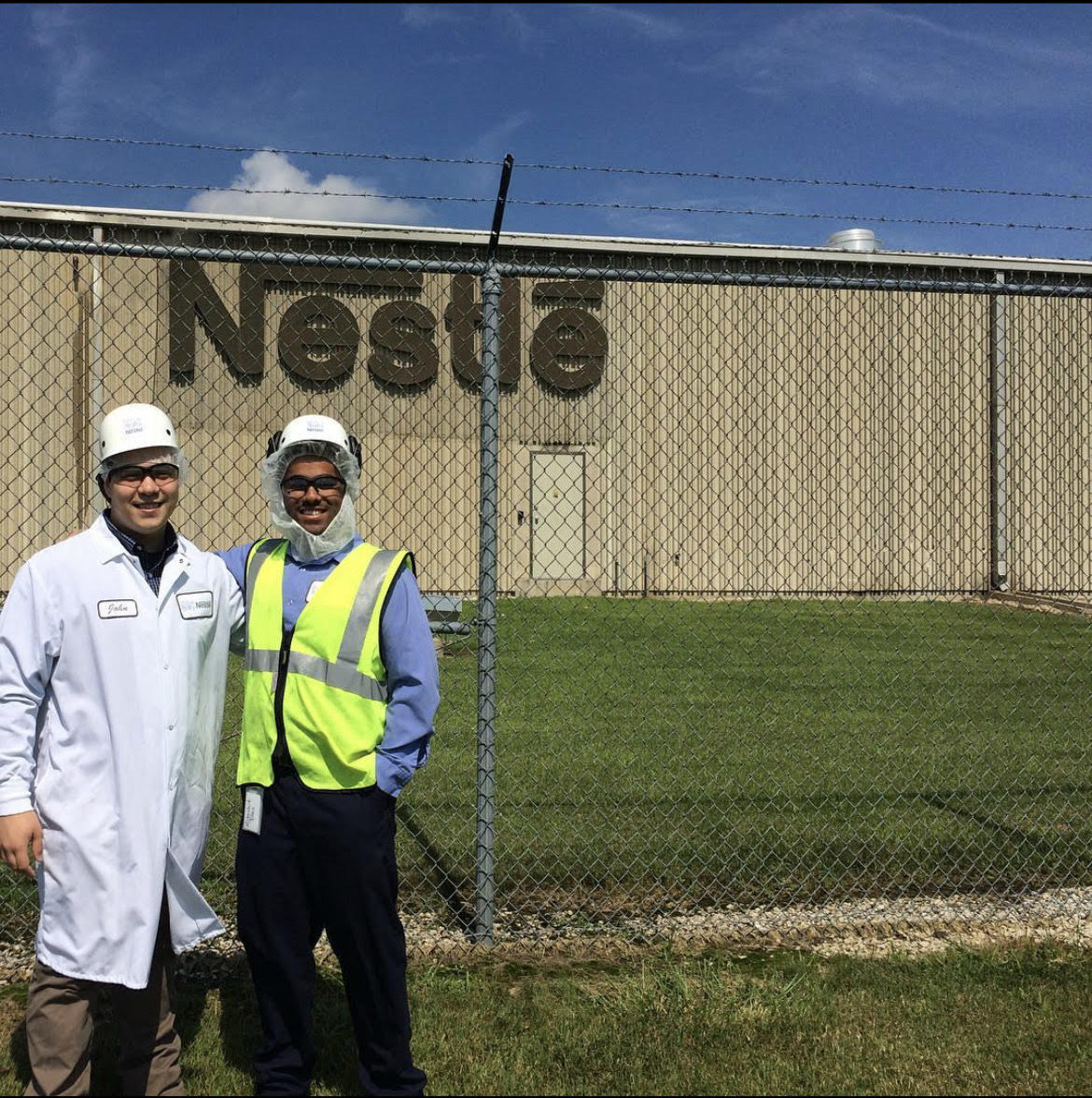Creating a Sustainable Future with Business Analytics

MSBA class of ’21 alum Ritochit Das saw firsthand the problem of industrial waste while working in a factory setting. Now he wants to use business analytics to help track and eliminate waste, creating a more sustainable future. Ritochit, who also goes by Ponti, found that his MSBA experience helped him pivot from a chemical engineering background to data analytics and software implementation.
Witnessing Waste at a Chocolate Factory
“My career path so far has been anything but linear,” Ponti says. One of his first professional experiences was an 8-month co-op with Nestle USA while he was finishing his chemical engineering degree. “Not really an office job, I’d say: I worked at a chocolate factory.” Ponti worked closely with maintenance engineers in this industrial setting, focusing on process improvement and data tracking. He was immediately struck by one thing:
“There’s waste everywhere. You see that right away when you walk into the factory. A lot of waste comes out of industrial processes, and people just don’t know where it’s coming from. There’s no data behind it, nothing you can trace it back to. It’s hard to not get involved when you see something like that.”
Solving Real-World Problems with Analytics
In the face of this complex problem, Ponti was drawn to the power of data. He knew that things like data modeling can help you understand why processes are broken and how to redefine them, make them cleaner. After transitioning away from an engineering career track with a few consulting jobs out of undergrad, Ponti became interested in pursuing a business analytics degree. “I chose that over a data science or computer science program because it has that tangible relevance to the real world,” Ponti says, “where you can change things right in front of you. That was the biggest thing for me, that sense of realness.”

Building a Business-Ready Skillset
Ponti enrolled in the MSBA program in 2020 and quickly got to know his classmates by working with them on team projects: “Everything was super team-focused throughout the entire program.” Ponti is grateful for these team experiences for more than just their social benefits. “In any corporate setting, you’re always going to be working with people you might not get along with,” Ponti notes. “The program was super helpful in teaching how you can still mitigate conflict and arrive at a conclusion everyone is comfortable with. It was a really safe space.”
Ponti also values the opportunities he had in the program to hone his skills of delivering presentations:
“You need to have the hard skills, like coding. But can you also present your findings to relevant stakeholders? Can you articulate your thoughts and really deliver a solid message? Employers are looking for both. If you can combine those two, it’s the most valuable thing.”
Forging a Path Toward a Long-Term Goal
Since graduating earlier this year, Ponti has really enjoyed keeping in touch with his classmates through an alumni network. “Our cohort has a LinkedIn group and a WhatsApp group. We’re actually getting together soon to go to a UW hockey game. Having that network of talented, skillful people to just chat with and see how their careers are going—I think that’s the most fun part about it.”
And in August, Ponti joined the social media software company Sprout Social as a Sales Operations Analyst. He credits his MSBA experience for this recent boost to his career trajectory. In terms of hard skills, he cites SQL familiarity which helped him on the technical assessment portion of the job interview. In terms of soft skills, Ponti cites the ability to talk about your accomplishments with clarity and confidence.
Ponti loves the role so far. “I’m working with tools I learned a lot about in the MSBA program in a direct corporate environment. It’s a very foundational place for me to be at right now.” But even though he’s happy with his new job, he still views it as part of a path toward his long-term goal of eventually returning to an industrial setting to reduce and eliminate waste. “It’s a stepping-stone to where I want to go,” says Ponti, “to be able to take all that I’ve learned and apply it to an industry that’s pretty data resistant.”
Learn more about the full Foster experience by connecting with an MSBA Student Ambassador or attending an upcoming online information session.
Written by Joe Garvin
Writer & Content Strategist
[email protected]
